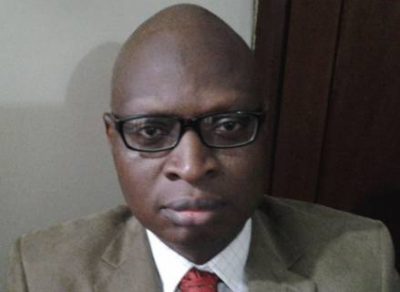When Roberto met Abraham: A book review of Kolawole Olaniyan’s Corruption and Human Rights Law in Africa
By Erica Razook
Anyone who watched scenes of blatant patronage politics employed to end slavery and win the civil war in the United States, as depicted in the 2012 film Lincoln,might well question if corruption is necessarily the nemesis of the progression of basic human freedoms and rights.
The movie gave me a crisis of conscience. In Berlin, a stalwart anti-corruption activist from Transparency International Estonia tried to reassure me that there’s always another way. But I couldn’t help question that,maybe sometimes, is corruption good.
Then I got a call, in early 2013, via Skype. It was from Roberto Berardi, who at that point was only on house arrest in Bata, Equatorial Guinea. Why was he arrested? Because he was in a position to provide firsthand evidence to US courts of massive thieving by the ruling family in Equatorial Guinea, a small but oil rich country on the west coast of Africa.
Roberto Berardi is an Italian businessman who entered into a joint venture with Teodorin Nguema, the son of the president of Equatorial Guinea, and the country’s second vice president. When the jointly owned company was identified in papers filed by the US JusticeDepartment in proceedings to seize assets in the US acquiredby Mr. Nguema, including a California mansion and Michael Jackson’s Bad tourglove, Mr. Berardi asked questions.
Soon thereafter, he was arrested, tried for fraud and misappropriation of corporate assets in a trial for which there areno written records, and was detained, mostly in solitary confinement, in aBata, Equatorial Guinea prison for years, until finally released on July 9. Human rights groups andhis family reported beatings, untreated illness, extreme weight loss and denialof access to needed medical attention, and suggested he’d remain detained andsuffering until the case in the US concluded and he’d effectively be precludedfrom bringing evidence to light.

Kolawole Olaniyan
And, this is exactly what happened: the case settled in October last year, and eventually, this month, Berardi was released home to Italy,despite President Obiang’s promises to tend to the humanitarian concerns in Brussels,at the European Union-Africa Summit,well over a year ago.
The connection between corruption and human rights could not be made any clearer, whether impacting individuals like Berardi, or en masse populations like in the countries hit by Ebola, where long histories of thieving from the public treasury resulted in inept healthcare systems unable to stop a deadly epidemic.
In an intellectually robust endeavor, Dr. Kolawole Olaniyan makes the case forcefully that human rights law and tribunals are a needed response to grand corruption. He argues compellingly in 362 rich pages that the human rights movement must take into account the underlying roots of the degradation of systems of governance via widespread corruption which in turn results in systemic rights abuses.
After examinations of national and international legal contexts, highlighting Nigeria, Equatorial Guinea and Angola, Dr. Olaniyan’s book, Corruption and Human Rights Law inAfrica, concludes that national criminal law approaches to countering corruption are needed but inadequate.
Turning to international human rights norms of universality and actopopularis, empowering all “spirited citizens” to bring complaints of abuses, Dr. Olaniyan culls refreshingly supportive statements from formercommissioners of the African Commission on Human and Peoples’ Rightsrecognizing the importance of considering corruption in the human rights casesit hears. This is a positive step forward from the denial of admissibility the Commission issued in a case filed by the Open Society Justice Initiative in 2007 against Equatorial Guinea, alleging that massive theftfrom the public treasury was a violation of Article 21 of the African
Charter on Human and Peoples’ Rights –a provision which protects the peoples’ rights to natural resources, wealth and development. In that case, the Commission decided that complainants would have toexhaust domestic remedies before approaching the continental forum. The denial of admissibility was not only a setback for people in Equatorial Guinea who have limited options for pursuing accountability for corruption domestically –according to lawyers in the country, the court system is entirely controlled by the executive, and in practice, the military, and a presidential decree is necessary to approve meetings of five people or more – but for would be anti-corruption activists generally, and others like Roberto who find themselves as potential witnesses to the crime. It evinced unapologetic disregard for the real security risks posed tothose who dare challenge such overpowering, all-encompassing oppressionmachines. In many places, not just in
Bata, people pay with their lives for thecost of corruption. Health crises wreak havoc. Livelihoods and food and watersources perish. Perspectives are silenced. Information suppressed. Basic services are denied, and avenues for recourse can be mere facades of justice, at best. Dr. Olaniyan is right to suggest legal actions challenging corruptionshould enjoy the same open notions of standing of complainants that the humanrights movement has forged.
He concludes also with a set of more specific recommendations, including around trust funds for victims of corruption, legal reform to enhance accountability of banks and other firms involved in laundering stolen assets,and mechanisms for peer review of anti-corruption conventions. I wondered how many options Lincoln had in his day. We have quite a fewmore.
Erica Razook is Legal Officer, Anticorruption, Open Society Justice Initiative, USA

